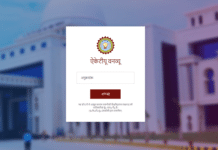Title: Mastering Time Management: A Guide for College Students
Introduction
Time management is one of the most essential skills needed for college and the future. Being a college personality means that you have to be in many places and do many things, such as attending classes, finishing homework on time, studying for exams, and participating in non-academic activities. It is also effortless to become overloaded with all of these tasks. It is up to a student to master time management and do everything in the best possible manner. This guide will explain to you, how to do that.
Understanding the Importance of Time Management:
Time management is the act of organizing and planning one’s activities to make the most of their time. This means sorting out your priorities and budgeting your time rationally to free yourself from stress and ensure adequate productivity. It is a powerful tool to realize your dreams, whether they are academic or work-related. Time management, for example, helps students to balance their academic stress with other responsibilities, such as social life and part-time jobs. Moreover, it cultivates self-discipline and self-control, traits that are essential in the life of student and adulthood .
Setting Clear Goals and Priorities:
The first step in effective time management is setting clear, achievable goals. Identify your academic and personal objectives for the semester, such as earning a certain GPA, completing a research project, or participating in a club or organization. Break down these goals into smaller, manageable tasks and prioritize them based on their importance and deadline. By focusing on high-priority tasks first, you can make steady progress toward your goals while minimizing procrastination and last-minute stress. Moreover, setting specific, measurable, attainable, relevant, and time-bound (SMART) goals provides a roadmap for success and helps you stay motivated and focused.
Creating a Schedule:
An organized schedule is the key to perfect time management. Plan your weekly schedule with a planner, calendar, or online scheduling tool and include everything from your day-to-day classes, study time, work shifts, and personal time or social events. Be candid with yourself about how long everything takes, and factor in buffer time to account for things that might take longer than expected. Try keeping your schedule flexible and ready to change as the situation demands. Also, dividing your schedule into smaller blocks of time, such as every hour or half-hour, for more accurate and concise planning and better execution of tasks.
Implementing Time-Blocking Techniques:
Another effective time management method is time-blocking; it entails certain blocks of time being reserved for a particular task or action. Create dedicated blocks of time per day or week for studying, taking classes, working on assignments, exercising, and resting. Dedicate each time block to a single activity or task and eliminate all distractions such as social media, emails, and text alerts. Compartmentalizing and devoting complete attention to a sole activity will increase productivity and enhance time management. It may also be useful to distinguish-between time blocks with colors or utilize visual reminders such as a timer to ensure that all designated time blocks are firmly protected within the schedule.
Using Time Management Tools and Apps:
Nowadays, the variety of tools and apps to help you manage your time is endless due to the extensive opportunities of the digital era. Among them, there are many productivity apps that allow you to plan your assignments and set reminders, such as Todoist, Trello, or Google Calendar to name but a few. There are also applications designed for time management and unique study techniques like the Pomodoro Technique that makes intervals of work and short breaks to retain focus and productivity . Furthermore, the investigation of different tools and apps can help you choose those you like and enjoy utilizing, which will only increase your efficiency and productivity.
Practicing Self-Care and Time for Relaxation:
It is as much as important to give your best at academic and professional commitments to giving yourself time for self-care and relaxation. Make sure to take regular breaks throughout the day to relax, rest, do the stuff that you enjoy, and fill your cup. Going for a walk, trying mindfulness, or spending time with pals are all excellent ideas. Taking a break and practicing self-care can help you prevent burnout and maintain a reasonable state of mind. You should practice self-care activities daily like mindfulness meditation or writing in a journal or another daily activity for better mental health and more accessible handling of these issues.
Conclusion
To conclude, time management is a crucial skill not only in the college life but throughout your life course. By clearly defining your goals, structuring a to-do list, using the time blocking strategy, working with productivity and time-tracking applications, and finally prioritizing self-care, you can tailor your workload to maximize productivity. It is not essential to do more with your time; rather, do the right things at the right time. With excellent time management, you can accomplish all your educational and personal aspirations while maintaining a work-life balance. The journey As young college students, you are about to take is testing your skills, and that is part of the college experience. Remember that if you are committed and determined, you will always overcome every challenge.
References
- Tracy, B. (2018). Time Management (The Brian Tracy Success Library). AMACOM.
- MacKenzie, A. (2008). The Time Trap: The Classic Book on Time Management. AMACOM.
Biographical Resources
- David Allen (n.d.). Retrieved from https://gettingthingsdone.com/
- Laura Vanderkam (n.d.). Retrieved from https://lauravanderkam.com/






















